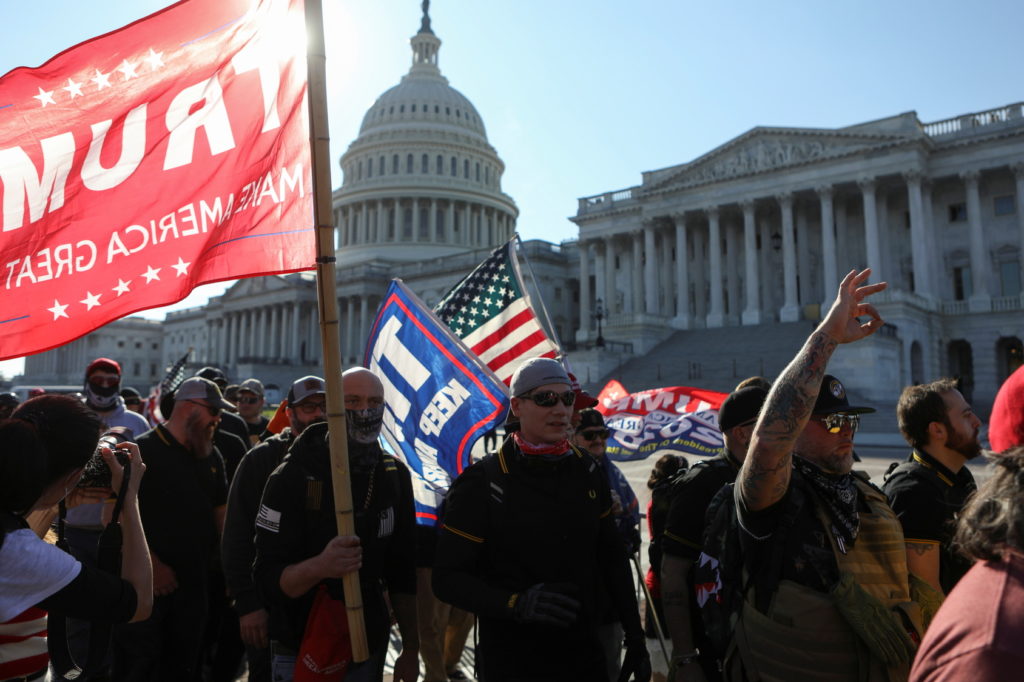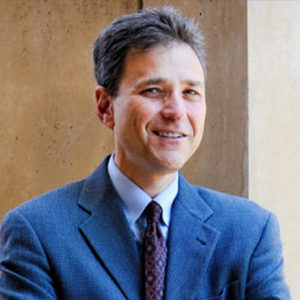Stanford’s David Sklansky on the Second Impeachment of Donald J. Trump
On February 9, the Senate began another impeachment trial of Donald Trump, the first president ever to be impeached twice. This time there is a single article of impeachment, charging Trump with inciting the storming of the Capitol on January 6 in an effort to disrupt the lawful transfer of power to then-President-Elect Joe Biden. Here, Stanford Law Professor David Sklansky discusses Trump’s second impeachment.

Can you recap the main defense for former president Donald J. Trump? They seem to be putting a big emphasis on procedure—that the timing of the impeachment is unconstitutional because he has already left office.
Trump’s lawyers have argued that the Constitution doesn’t authorize an impeachment trial of a president who is no longer in office; that even if it did, Trump isn’t to blame for the violent storming of the Capitol on January 6; and that holding him responsible would violate the First Amendment.
The problem with the first argument—the procedural objection—is threefold. First, nothing in the text of the Constitution says that an impeachment trial has to be held while the president still holds office. Second, as the House Managers have pointed out, disallowing an impeachment trial after a president has left office would mean that Congress would have no remedy for “high crimes and misdemeanors” committed in the last weeks of a president’s tenure. Third, there is clear, longstanding precedent on this question. The Senate has held impeachment trials in the past for former officials who are no longer in office, although the question hasn’t previously arisen regarding a president. The Senate was right to reject the procedural objection raised by the former president’s lawyers.
How strong is the First Amendment argument put forward by Trump’s legal team?
Weak. The biggest problem with it is that “high crimes and misdemeanors” don’t have to be acts that could be criminally prosecuted if committed by a private citizen. The First Amendment protects you from criminal prosecution for inciting violence unless your words were calculated to create an “imminent” risk of illegality. The Supreme Court has interpreted that test very narrowly in the past, and it’s debatable whether it is satisfied by what Trump said leading up to and during the storming of the Capitol on January 6. But it doesn’t matter, because Trump wasn’t an ordinary citizen on January 6, and he is not being prosecuted in a criminal court. “High crimes and misdemeanors” is a constitutional term of art, roughly synonymous with serious abuses of power. And it’s hard to think of a more serious abuse of power than egging on a mob to violently storm the Capitol in order to block the lawful transfer of power.

You’re a former prosecutor. How strong a case do you think the Democrats have against Trump? Is the evidence compelling?
It’s a very strong case. The video timeline the House Managers presented on Tuesday was devastating. At the very least it shows that Trump whipped up the crowd in a way that obviously could result in violence, regardless of whether it called for violence directly and explicitly enough to satisfy the First Amendment test for incitement punishable in an ordinary criminal case. The video compilation also made clear that the mob storming the Capitol believed they were acting at Trump’s behest; that when the violence began Trump did nothing to stop it; and that two hours after the Capitol was breached, when the President finally asked the mob to “go home in peace,” he also expressed his “love” for them and his sympathy with their feelings. Finally, the video reminded Senators that four hours after the rioters invaded the Capitol, Trump praised them as “great patriots” on Twitter, and he made clear that he thought their actions were not only understandable but praiseworthy—that they should proudly “remember this day forever.”
What is the burden of proof on Democrats? As you’ve said, this isn’t a criminal trial, correct?
Right, it’s not a criminal trial. And unlike a criminal trial, where the prosecution bears the burden to prove its case “beyond a reasonable doubt,” neither the text of the Constitution nor the rules of the Senate specify the standard of proof in an impeachment trial. As a practical matter, the burden of proof has been left to the Senators to decide for themselves individually.
Is it important for Trump to testify?
It’s not going to happen. His lawyers have said that he won’t appear voluntarily. And although in theory the Senate could subpoena him, efforts to enforce the subpoena could delay the impeachment trial for months, and neither party is interested in that.
Can the Senate make this vote private? Or would that be a procedural question?
That’s a procedural question for the Senate. In the past, votes in impeachment trials have always been public. In theory, the Senate could decide to handle it differently this time. But that seems highly unlikely.
If this second impeachment trial doesn’t end in a conviction, can Congress still censure Trump? Can Congress still stop him from running for elected office again?
Congress could still censure Trump. A censure is basically just a resolution, expressing the feelings of Congress. It doesn’t have any legal consequences. In particular, it wouldn’t bar Trump from running for office again.
There are several investigations into Trump’s finances. If he’s found guilty of a federal crime, would he be prevented from running for elected office?
Trump is under investigation for financial crimes in New York, and he faces a criminal investigation in Georgia for election tampering. But no, a criminal conviction wouldn’t bar him from running for elected office. The only way to do this is for the Senate to convict him on the article of impeachment.
David Alan Sklansky is the Stanley Morrison Professor of Law and Faculty Co-Directory of the Stanford Criminal Justice Center. His new book, “A Pattern of Violence: How the Law Classifies Crimes and What It Means for Justice,” will be published by Harvard University Press in early 2021.
